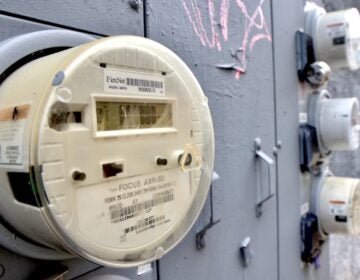Facebook founder Mark Zuckerberg visits Delaware
Disaster relief efforts was on the mind of Facebook founder Mark Zuckerberg as he visited with Delaware leaders and academics.

Mark Zuckerberg met with UD professors to discuss emergency management. (photo courtesy of the University of Delaware)
Facebook founder Mark Zuckerberg met with state officials and academics in Delaware on Monday to discuss emergency response for natural disasters.
The social media leader met with Gov. John Carney, D-Delaware, the Delaware National Guard, and Emergency Management, Homeland Security and Transportation directors.
Zuckerberg also arranged a discussion with experts from the University of Delaware’s Disaster Research Center.
“They told me about the Cajun Navy—an informal group from the Louisiana Bayous who got on their motor boats after Harvey flooded Houston and started rescuing people in the flooded streets of Houston. They told me how after 9/11 in New York City, a makeshift armada of civilian boats—motor boats, dinner cruise ships, yachts, etc.—helped people get off Manhattan and in many cases get back home to New Jersey or other places,” he posted on his Facebook page.
“These stories make it clear there’s even more we can do to help our community work together in disasters to keep us all safe. This is historically work that only governments and non-profits would do, but we’re in a new world and there is an important role for internet communities to help here too.”
The meetings come on the heels of several natural disasters around the world, including back-to-back hurricanes affecting Texas, Florida, Puerto Rico and the Caribbean.
Facebook has launched several tools in an effort to improve the safety of its members. During a disaster, individuals who live in the affected area can mark themselves safe. The company also launched Community Help, which matches volunteers who can provide resources to those in need. Facebook also can help members raise money for non-profits through the site.
During Zuckerberg’s meeting with experts from UD’s Disaster Research Center, which took place at Iron Hill Brewery at the Wilmington Riverfront, he learned about the importance of community resiliency.
“Someone who is involved in a large organization like Facebook, as well as their social impact initiative that has begun to unfold over the past couple years, the work with the Chan Zuckerberg Initiative, the more people we can share accurate information about what we know about disasters the more they can hear from the communities impacted and struggle with these issues every day the better off we are as a nation to address these issues,” said Tricia Wachtendorf, director of UD’s Disaster Research Center and a professor of sociology and criminal justice.

Director James Kendra discussed his work on a project with Johns Hopkins University to develop a model to predict a community’s recovery trajectory. Chester County is interested in using that approach and collaborating with UD students.
DRC faculty member Victor Perez and Southbridge Civic Association president Marie Reed discussed their work in the Wilmington community, which struggles with chronic flooding and contaminated soil exposure.
“So it’s not just looking at hurricane Harvey or hurricane Irma, but understanding how some of those vulnerabilities and some of those issues are things that are routine to people’s lives, and if we think of disaster risk reduction we need to start before the disaster happens,” Wachtendorf said.
“As we’re seeing what’s unfolded in Houston in more rural communities in Texas, if we look at the huge challenges that faced Florida after hurricane Irma or the island of Puerto Rico and other Caribbean islands are facing now, this is something we all need to think about not only when disaster happens but to make those changes ahead of time to improve risk reduction and reduce exposure.”
DEMA Director AJ Schall said he discussed the role social media plays in his agency.
“I think it was great for us to explain to him how we utilize social media—not just DEMA, but public safety organizations across the country—how important it is to us, how we use it, not to replace old traditional media or outreach, but to supplement and enhance how quickly we can get messages out to people,” he said.
“We explained how to create additional avenues for information—so, it’s great we’re able to see real firsthand information of what people are posting of damage or current situations, but then we also have to monitor to make sure it’s accurate information as well, so you take the good with the bad.”
Schall said it’s critical to educate the public, and remind them of the importance of emergency preparedness.
“Right now the nation, between what’s happening in Texas and Florida and Puerto Rico and the Virgin Islands, individuals are paying attention, and are going to because of that be a little more resilient,” he said. “But a year from now that’s going to fall off a lot of peoples’ minds in the Mid-Atlantic, so come next storm season we have to make sure we consistently build that message up.”
You can read Zuckerberg’s Facebook post about his time in Delaware below.
WHYY is your source for fact-based, in-depth journalism and information. As a nonprofit organization, we rely on financial support from readers like you. Please give today.





